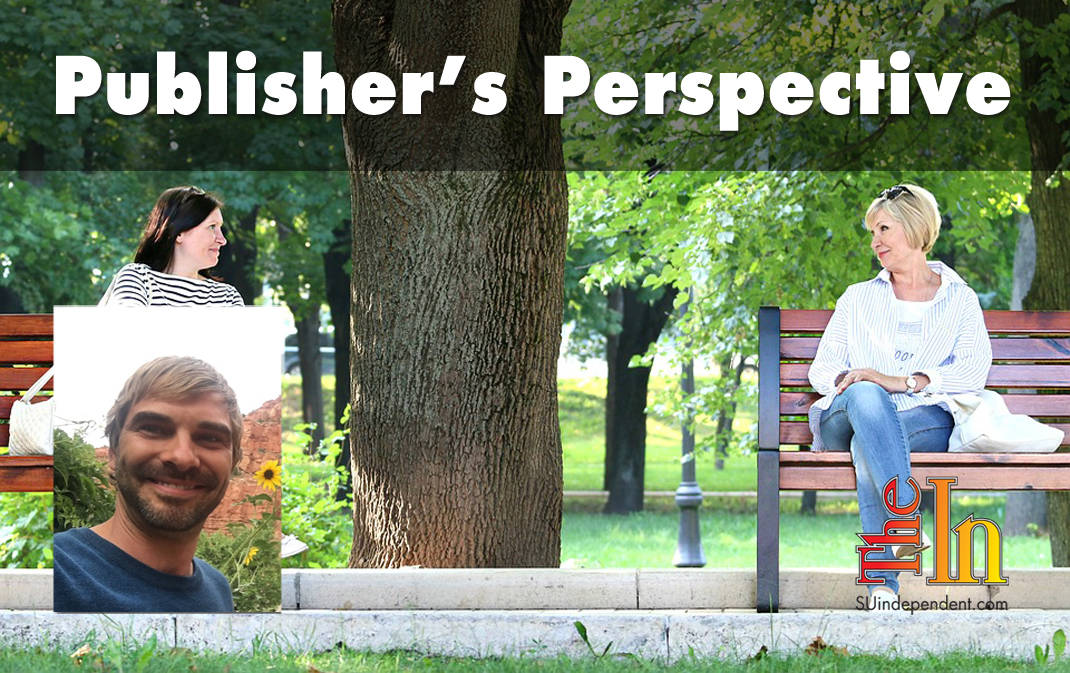 It’s been said that we live in one of the most divisive times in history. It may not be the most dangerous time in history (remember the Cold War), but it’s certainly one of the most contentious. We all carry implicit biases, and while it’s true that we would most often side with one political opinion, or the opposition, we may in fact often fall into a third category: that of the surrounding community. If you happen to fall into the that third category on an issue, you might find yourself with a unique opportunity to unite or bring clarity to a situation, and if we choose to, we can fall on one side of an issue but still choose to be among those working to better understand the issue and unite those with differing viewpoints.
It’s been said that we live in one of the most divisive times in history. It may not be the most dangerous time in history (remember the Cold War), but it’s certainly one of the most contentious. We all carry implicit biases, and while it’s true that we would most often side with one political opinion, or the opposition, we may in fact often fall into a third category: that of the surrounding community. If you happen to fall into the that third category on an issue, you might find yourself with a unique opportunity to unite or bring clarity to a situation, and if we choose to, we can fall on one side of an issue but still choose to be among those working to better understand the issue and unite those with differing viewpoints.
Last month, I wrote an article about how to deal with conflict and with people you disagree with in a manner similar to how you would if you were in a relationship with them, the concept being simply to consider treating others with the respect and compassion with which you would your significant other. This present article is a bit of a continuation of that concept.
Many of us are saddened and disheartened by the divisiveness that currently permeates our political landscape. And some of us are looking for a way forward. This article aims to make a few suggestions on how we might do that. So here goes.
Try to get out of your filter bubble. You may not know it, but Google analyzes 57 signals in deciding what search results it’s going to give you (even if you’re logged out of Google). Similarly, Facebook largely filters in what it thinks you want to see and filters out what it thinks you don’t want to see, and it does it in a way so that you don’t even realize it’s happening at all. As an exercise in broadening your own viewpoint, consider reading news stories from opposing sources (Facebook often shows similar stories under ones you’ve clicked on). Try reading an article from a conservative news source and then reading the same article, or a similar one, from a liberal news source (or vice versa). Being willing to read from sources that you would historically disagree with, if for no other reason than to understand another’s point of view or perspective, deepens your own understanding of the issue and allows for the knowledge fundamental to reconciliation. To understand better how someone feels about an issue, it’s incredibly helpful to understand how they think — and how they’re getting their information.
It also helps to be aware of how one side sees the other. As an example, many conservatives believe the coastal elites wield a large amount of financial and political power — and with a certain condescension. Whether intentional or not, there is truth in that. On the other end, many liberals believe that Donald Trump’s rhetoric threatens them and their families. There is truth in that as well. Recognize that these beliefs are based in their individual realities, that they are as real as your viewpoints, and that they are completely valid. Our experiences shape how we view things, and how we view things very much shapes our positions on the issues. Be open to seeing a different viewpoint — that is, if you’re truly ready to gain perspective and understanding.
Another idea is simply offering to take someone with an opposing viewpoint to lunch. Don’t do it with the thought that you’re likely to change their mind — because you probably won’t — but you may enhance their point of view as well as your own. Just sitting down and breaking bread will give you a great place to start, and begin the conversation with something like “Thank you so much for accepting my invitation. I’m really interested in better understanding your point of view on this issue.” You might also add something like, “Just the fact that you would meet me shows me we are friends, and your passion for this issue tells me we can have a very honest conversation.”
Another idea is to find a neutral place, either physical or online, to debate. Some of the best spaces for cross-partisan dialogue are places that have a superseding commonality, such as sports message boards. The concept goes that if you already have something in common you’re both passionate about, and if that unites you, there’s a healthy basis for your interaction. Cheer on your favorite team together, then ask your colleague to help you understand their point of view. Most people will jump at the chance to open up to someone they feel is in some way already on their team.
Above all, recognize that you actually have to put effort forth if you’re interested in expanding your understanding of the divide that currently exists. You may think to yourself that you already know both sides of an issue, but you’ll likely be surprised with the insight you can gain with a bit of effort. I, for one, am willing to have these uncomfortable but important conversations so that we can work together to unite under common goals and beliefs. I hope you will too. Have a beautiful month.



